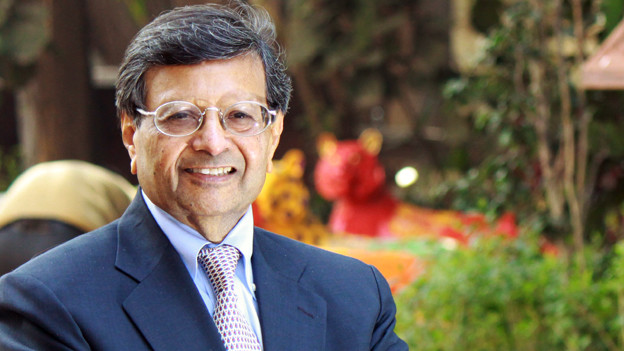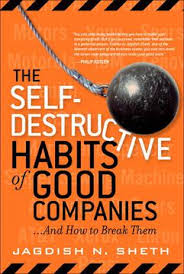BY DR. JAGDISH SHETH*
The most insightful question that I have ever been asked by a corporate executive was: Why do good companies fail? The CEO who posed this riddle had been a great fan of the 1980s business bestseller, ‘In Search of Excellence’ by Tom Peters and Bob Waterman. However, as time went by, he was struck by how many of the companies cited as examples of world-class corporations were either struggling or no longer in existence. This included such icons of U.S. businesses as Sears, Dana Corporation, AT&T, Xerox, IBM, and Kodak.
This eighties reality is replicated more recently, especially after the Great Recession of 2008. Kraft Foods, DuPont Company, and General Electric are all in midlife crises and trying to figure what business they are in. This is especially true in retailing. Who would have imagined that Toys R Us and Radio Shack will go bankrupt? In 2018, more than 3800 retail stores were shut down on a worldwide basis. We also saw mergers of large banks and financial institutions, just to survive. And the American icon General Motors as well as Chrysler were bailed out by the U.S. and Canadian governments.
It is interesting to observe that while the life expectancy of people is increasing, that of the large corporation is steadily declining. It is today less than 14 years and declining.
The more I pondered the CEOs question, the more curious I became as to why companies that seem to be doing well and that are at the top of their industries, can almost overnight spiral downward into survival mode. The companies I am talking about are not government-protected monopolies that have suddenly been cast into the churning seas of competition. I am referring to world class businesses that appear to have top managers, a proven track record of success, inventive products, and a seemingly unassailable competitive position. Why do these companies go bad?
My journey toward an answer began with archival research to identify companies that were great in their time and that had subsequently faded away. During this process, I tried to understand the reasons for their downfall. The message that came out of the research was simple: good companies fail when they are unable, or more curiously, unwilling to change when their external environment changes significantly.
Underlying this inability or unwillingness to change, I discovered seven self-destructive habits successful companies acquire on their way to greatness. They are: (1) Denial of new realities especially with respect to technology, global competition, and changing demographics ; (2) Arrogance even though the success of the business is often accidental; (3) Complacency which grows with maturity ; (4) Competence Dependency where the old skill or technology is obsolete and you do not know how to transform to the new skill or technology; (5) Competitive Myopia where you only watch your immediate rival (General Motors vs. Ford or Coke vs. Pepsi) and ignore nontraditional competitors; (6) Volume Obsession which results in margin erosion; and (7) finally, Internal Turf Wars between product divisions , business functions, and separate subsidiaries.
Among these seven bad habits of good companies, the most critical to watch is denial of new realities. I think this is a problem we are facing both at a nation level as well as at the corporate level in America.
My book, The Self Destructive Habits of Good Companies…And How to Break Them, (Pearson Education) has struck a chord. It is translated in more than a dozen languages.
*Jagdish N Sheth, Ph.D. in Behavioral Science from University of Pittsburgh, is the Charles H Kellstadt Professor of Business at the Goizueta Business School at Emory University. He has published more than 300 research papers and authored more than 20 books in consumer behavior, globalization, marketing strategy, and relationship marketing. My book, The Self Destructive Habits of Good Companies…And How to Break Them, (Pearson Education) has struck a chord. It is translated in more than a dozen languages.
New Video: Repositioning of Rural Development in India: From Mirage to Miracle – https://t.co/sVblbPYs9r
— Dr. Jagdish N. Sheth (@JagSheth) July 10, 2019




